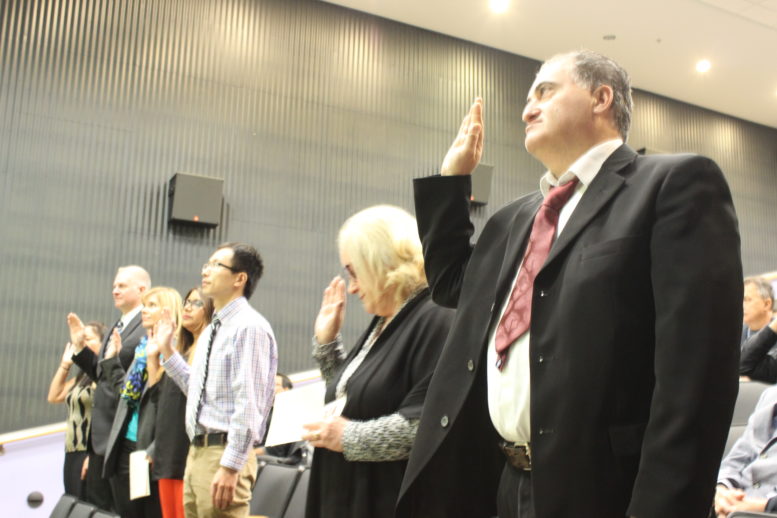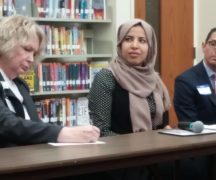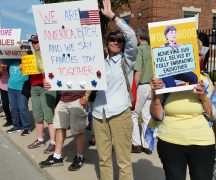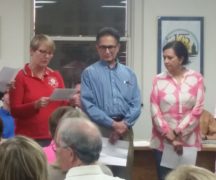By DAVID DUPONT
BG Independent News
The day after the son of an immigrant was elected president, 10 people took their oaths of citizenship at a naturalization ceremony at Bowling Green State University.
It was the second year that Federal Judge James R. Kneff convened his court on campus to hold the naturalization session.
Kneff said the timing of the ceremony was fitting. “This ceremony is a day to take a deep breath after an election cycle with a fair amount of acrimony – that probably doesn’t do it justice. Part of what happens after each election is … we have a period of healing and figuring out we agree about more than we disagree.”
Those becoming citizens Wednesday and their counties of origin were: Iffat Almas, Pakistan; Adnan Hani Assaf, Lebanon; Barbara Gilchrist, Germany; Mohammad Sameh Kayed, Jordan; Hiba Kishli, Lebanon; Morgan Vincent Lee, People’s Republic of China; Deborah Carol Lynn and Robert Peter Schankula, Canada; and No Thi Tran, Vietnam.
Kneff said that they were “exhibit A of why immigration, when done right, is important. We’re a nation of immigrants and I’m so proud to call you all my fellow citizens today.”
A few months ago, Juan Pablo Bes, a BGSU math professor from Argentina, took the oath of citizenship. Those months though seemed longer because of the election. “It was a major experience.”
He talked about how immigrants helped shape the country. Some like Alexander Graham Bell, from Scotland like President-Elect Donald Trump’s mother made notable contributions. Bell invented the telephone and founded the company that became AT&T. Immigrants founded other “iconic companies” including Procter and Gamble, DuPont, and Google, Bes said.
“No less important is the impact of millions of ordinary Americans who through their work every day and their cultural diversity contribute to this society.”
Bes said he and others becoming U.S. citizens feel an internal conflict. He said they may feel that they are renouncing their culture, their place of birth, their language. But “what we are renouncing is allegiance to a foreign state. We’re renouncing allegiance to other governments.”
He continued: “The United States is so great that it allows us to keep our roots, keep our identity, keep our language.”
He advised the new citizens “to embed yourself in American society. Hold onto your roots, your culture and your language for the benefit of your children and grandchildren and make them define through your citizenship what it means to be an American as previous generations of immigrants have done.”





